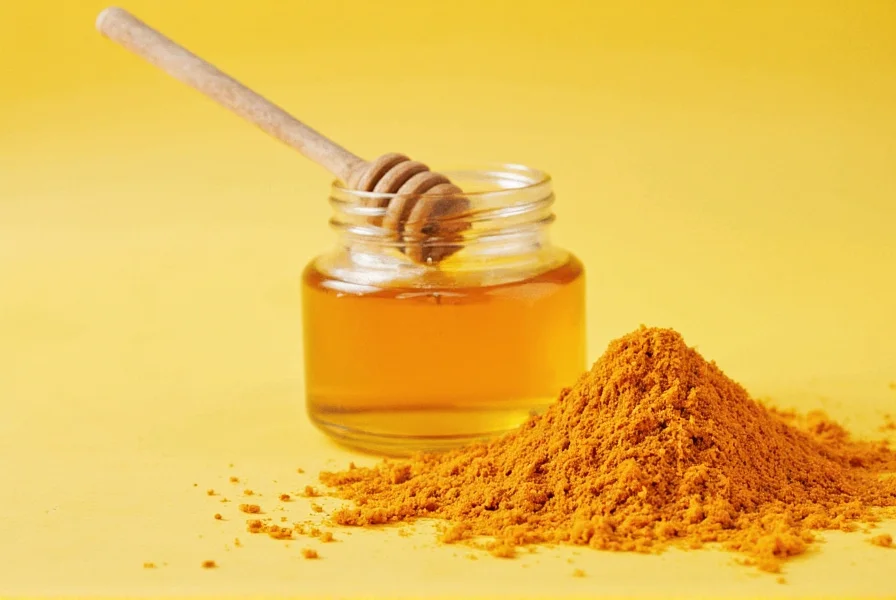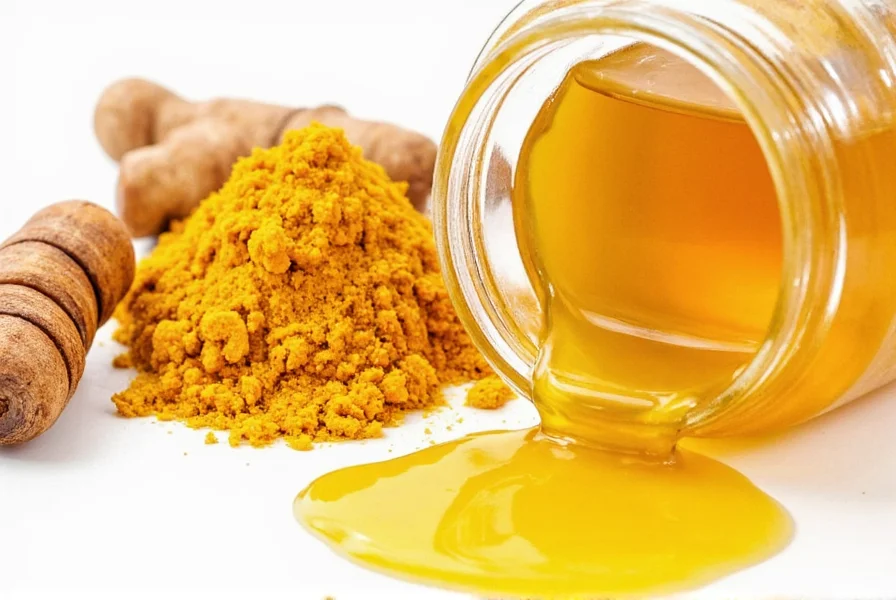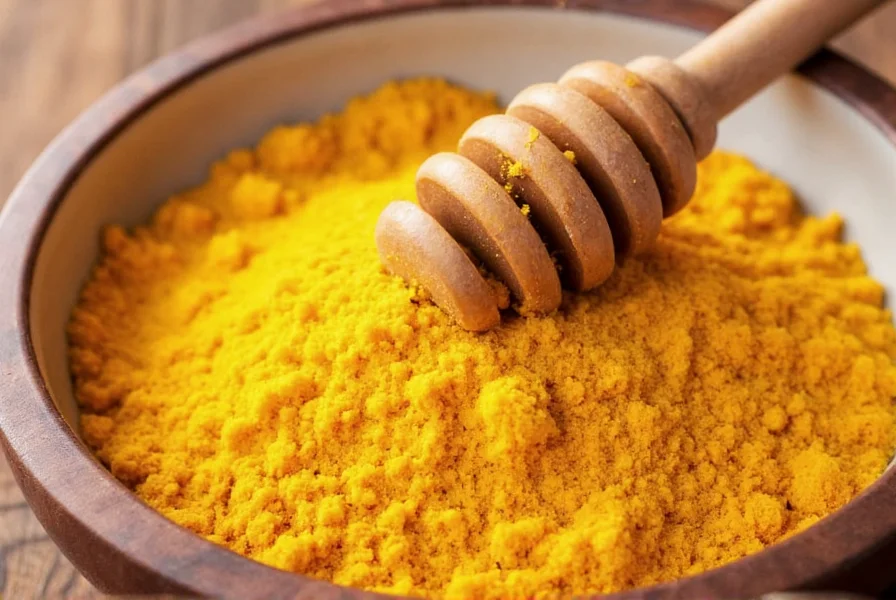For centuries, turmeric and honey have been staples in traditional medicine systems worldwide. Modern science is now validating many of these historical uses while revealing important limitations. This comprehensive guide examines what current research actually shows about combining these two natural substances, separating evidence-based benefits from popular myths.
The Science Behind Turmeric
Turmeric (Curcuma longa) contains curcuminoids, with curcumin being the most studied compound. Research published in Advances in Experimental Medicine and Biology confirms curcumin's potent anti-inflammatory and antioxidant properties. However, curcumin has notoriously poor bioavailability—meaning your body struggles to absorb it effectively. Consuming turmeric with black pepper (which contains piperine) can increase absorption by up to 2,000%, according to a Planta Medica study.
Honey's Therapeutic Properties
Honey isn't just nature's sweetener—it's a complex substance with documented medicinal properties. The Journal of Agricultural and Food Chemistry reports that raw honey contains over 180 compounds, including antioxidants and hydrogen peroxide. Manuka honey specifically demonstrates significant antibacterial activity against pathogens like Staphylococcus aureus, as verified by research in Microbiology.
Evidence for Turmeric and Honey Combinations
When combined, turmeric and honey may offer synergistic effects for specific health concerns:
| Health Application | Scientific Evidence | Recommended Use |
|---|---|---|
| Sore throat relief | Multiple studies show honey reduces cough frequency and severity better than placebo; turmeric's anti-inflammatory properties may complement this effect | 1 teaspoon honey with 1/4 teaspoon turmeric, taken as needed |
| Wound healing | Honey's antimicrobial properties combined with turmeric's anti-inflammatory effects show promise in preliminary studies | Topical application of diluted mixture (consult healthcare provider first) |
| Inflammation reduction | Curcumin shows comparable effectiveness to some anti-inflammatory drugs in clinical trials, though bioavailability remains challenging | Regular consumption with black pepper to enhance absorption |
How to Maximize Benefits Safely
For optimal results when using turmeric and honey for inflammation or immune support, follow these evidence-based recommendations:
- Enhance absorption: Always combine turmeric with black pepper and a healthy fat (like coconut oil) to improve curcumin bioavailability
- Choose quality ingredients: Use raw, unprocessed honey and organic turmeric powder or fresh root
- Dosage guidance: Research suggests 500-2,000 mg of curcumin daily, which equates to about 1/2 to 1.5 teaspoons of turmeric powder
- Timing matters: Consume with meals containing healthy fats for better absorption

Important Limitations and Safety Considerations
Despite promising research, significant limitations exist when using turmeric and honey for health purposes:
Curcumin's poor bioavailability means most consumed turmeric passes through your system unabsorbed. Even high-quality supplements typically achieve blood concentrations far below therapeutic levels seen in laboratory studies. Additionally, honey contains significant sugar content—approximately 17 grams per tablespoon—which matters for people managing diabetes or watching sugar intake.
Certain populations should exercise caution:
- People taking blood thinners should consult doctors before using turmeric regularly
- Infants under one year should never consume honey due to botulism risk
- Those with gallbladder issues may experience complications from turmeric
- Individuals with turmeric allergies (rare but possible) should avoid this combination
Practical Applications for Daily Wellness
For those interested in incorporating turmeric and honey into their wellness routine, evidence supports these specific applications:
Golden Milk Preparation: Heat 1 cup unsweetened almond milk with 1/2 teaspoon turmeric, 1/4 teaspoon cinnamon, a pinch of black pepper, and 1 teaspoon raw honey. This traditional preparation enhances curcumin absorption while providing soothing benefits. Research in Complementary Therapies in Medicine suggests such formulations may support immune function during cold season.
Sore Throat Soother: Mix 1 teaspoon raw honey with 1/4 teaspoon turmeric and a pinch of black pepper. Take every 2-3 hours as needed. A Cochrane Database review confirms honey's effectiveness for cough and throat irritation, potentially enhanced by turmeric's anti-inflammatory properties.

What Research Doesn't Support
Despite popular claims, current scientific evidence doesn't substantiate several common assertions about turmeric and honey:
- Cancer treatment: While laboratory studies show curcumin's potential against cancer cells, no human trials prove turmeric-honey mixtures treat or prevent cancer
- Weight loss miracle: No quality evidence shows this combination significantly impacts weight loss beyond general dietary changes
- Antibiotic replacement: Though honey has antimicrobial properties, it shouldn't replace prescribed antibiotics for infections
The National Center for Complementary and Integrative Health emphasizes that natural products aren't automatically safe or effective. Always discuss using turmeric and honey for specific health concerns with your healthcare provider, especially if managing chronic conditions or taking medications.
Conclusion: Balancing Tradition and Science
The combination of turmeric and honey represents where traditional wisdom meets modern science. While research validates certain benefits—particularly for inflammation and sore throat relief—it's crucial to maintain realistic expectations about what this natural remedy can and cannot do. The most effective approach combines evidence-based usage with professional medical guidance, recognizing that natural remedies complement rather than replace conventional treatments for serious health conditions.
Frequently Asked Questions
Does turmeric and honey really reduce inflammation?
Yes, but with important caveats. Curcumin in turmeric demonstrates anti-inflammatory effects in numerous studies, including research published in the Journal of Medicinal Food. However, its effectiveness depends on proper formulation to overcome poor bioavailability. Honey contributes additional anti-inflammatory compounds. For best results, combine turmeric with black pepper and healthy fats.
How much turmeric and honey should I take daily?
Research suggests 500-2,000 mg of curcumin daily, equivalent to 1/2 to 1.5 teaspoons of turmeric powder. Combine with 1-2 teaspoons of raw honey. Always start with lower doses to assess tolerance. Consult your healthcare provider before regular use, especially if taking medications or managing health conditions.
Can turmeric and honey help with sore throat?
Yes, multiple studies confirm honey's effectiveness for soothing sore throats and reducing cough frequency. Turmeric's anti-inflammatory properties may enhance this effect. A Cochrane review found honey outperformed placebo for upper respiratory infections. For sore throat relief, try 1 teaspoon honey mixed with 1/4 teaspoon turmeric and a pinch of black pepper.
Why add black pepper to turmeric and honey mixtures?
Black pepper contains piperine, which significantly enhances curcumin absorption. Research in Planta Medica shows piperine can increase curcumin bioavailability by up to 2,000%. Without this enhancement, most curcumin passes through your system unabsorbed. Always include a small pinch of black pepper in turmeric preparations for maximum benefit.
Are there risks to combining turmeric and honey regularly?
Potential risks include interactions with blood thinners (turmeric may enhance their effects), high sugar content from honey (concern for diabetics), and possible digestive upset from excessive turmeric. Infants under one year should never consume honey due to botulism risk. Always consult your healthcare provider before regular use, especially if managing health conditions or taking medications.











 浙公网安备
33010002000092号
浙公网安备
33010002000092号 浙B2-20120091-4
浙B2-20120091-4